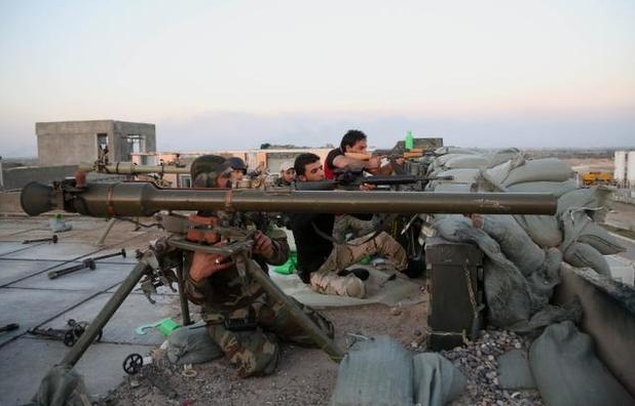A two-day pause supposedly intended to give the Iraqi government time to bring up reinforcements has stretched into a week, as reports circulate that Iraqi government troops and the militias took heavier than anticipated casualties in their first efforts to dislodge Islamic State fighters. At least 1,000 militiamen died in the early days of fighting, according to some reports, roughly 5 percent of the 20,000 men the militias have committed to the operation.
Even during the pause, pro-government casualties remain high. A witness in the main government hospital at the nearby city of Samarra said that at least 100 dead or wounded fighters had been brought in over the last four days and that “bodies are everywhere” at the facility. The witness asked to remain anonymous for security reasons.
Difficulties with the Tikrit operation underscore how unlikely it is that the Iraqi military will be in any position soon to launch an assault to recapture Mosul, Iraq’s second largest city, which fell to the Islamic State last June. A U.S. military officer in February created a stir when he told reporters at the Pentagon that such an assault might come as soon as April. Pentagon officials later acknowledged that Iraqi troops might not be in such a position before the fall.
The Shiite militias come to the battle with a sectarian zeal and are said to be untroubled by the prospect of casualties. Tikrit is the hometown of the late Iraqi leader Saddam Hussein, whom most Shiites detest for his repression of their sect. It is also the scene last summer of a notorious massacre of 1,000 Shiite air force recruits, whose video-recorded deaths at the hands of the Islamic State were widely distributed on the Internet. Hadi al Ameri, the leader of one of the militias, the Badr Organization, openly referred to the retaking of Tikrit as “revenge for Speicher,” the military camp where the recruits were murdered.
The militias’ Iranian advisers, against whom Saddam fought an eight-year war and who have also battled the Islamic State in Syria, also are said to favor an advance, whatever the cost.
Read more


 RSS Feed
RSS Feed